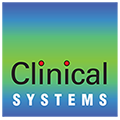March 2021
For almost a year, the journal Nature has been looking at the literature on the coronavirus and summarising key papers as they appear. To track the remarkable progress on understanding the virus and on vaccine developments see:
The Pfizer and AstraZeneca vaccines are more than 80 per cent effective at preventing hospitalisations from COVID-19 in those over 80 after one dose of either shot, Public Health England has said, citing a pre-print study:
The European Commission has released an updated version of its draft Q&A guidance document dealing with the application of the Clinical Trials Regulation ((EU) 536/2014) - (requires free trial registration):
uk.practicallaw.thomsonreuters.com
It is becoming increasingly apparent that a large number of children with symptomatic and asymptomatic COVID-19 are experiencing long-term effects, many months after the initial infection. Up to 100 symptoms have been reported by support groups and researchers:
longcovidkids.org/long-covid-research-on-children
The Institute of Biomedical Science (IBMS) has rescheduled its 2021 Congress to Monday 14th - Thursday 17th March 2022 in Birmingham, UK, with the theme of “Linking learning to the Laboratory”. Booking is now open, with early bird discounts:
AstraZeneca sold its 7.7% stake in rival COVID-19 vaccine maker Moderna for over $1 billion in late 2020:
A cross-sectional study of 230 US-based clinical trials, Black or African American, American Indian or Alaska Native, Hispanic or Latino, and older adults were underrepresented and women were overrepresented compared with the US population, suggesting diversity enrolment targets are needed for vaccine trials:
The global virtual clinical trials market size is expected to reach USD 13.78 billion by 2027. They have several advantages over traditional trials including lower costs, lower drop-out rates, higher recruitment rates, better compliance, and faster completion rates:
The European Medicines Agency (EMA) has published guidance outlining the requirements for manufacturers planning to modify their approved COVID-19 vaccines to combat emerging SARS-CoV-2 variants:
europeanpharmaceuticalreview.com
American biotech firm Vaxess Technologies has moved to the forefront in developing a refrigeration-free, virtually painless single-dose skin vaccine patch that can be applied by patients in their own homes:
The UK’s National Institute for Health Research (NIHR) has developed a new approach to engage with patients in the design of clinical trials, thereby improving the sustainability and quality of research while remaining aligned with ethics guidelines and codes of conduct:


